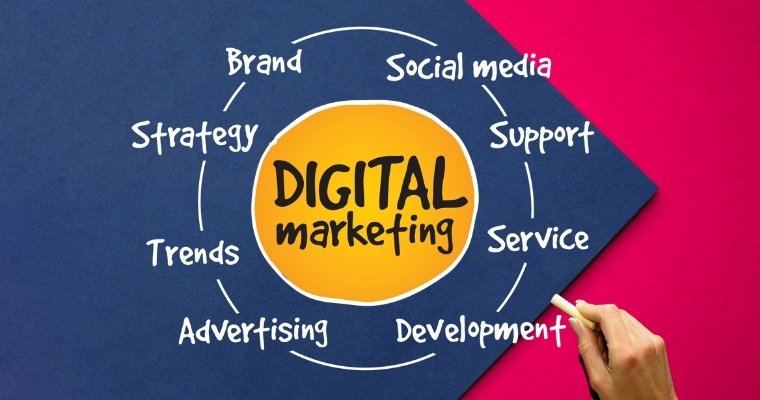In the world of digital marketing, Search Engine Optimization (SEO) plays a critical role in determining the success of a website or online business. Whether you’re a small business owner or running a global enterprise, SEO is one of the most powerful tools you can use to drive organic traffic, boost visibility, and grow your brand online. In this article, we’ll explore how SEO works within the digital marketing ecosystem, key techniques to optimize your site, and why it remains essential in 2024 and beyond.
What is SEO?
Definition of Search Engine Optimization (SEO)
SEO refers to the process of optimizing your website and its content to make it more visible and attractive to search engines like Google, Bing, and Yahoo. By improving various aspects of your website—such as its content, structure, and performance—SEO helps search engines rank your site higher in search results, ultimately driving more organic traffic.
How SEO Fits into a Broader Digital Marketing Strategy
SEO is one part of a comprehensive digital marketing strategy, working alongside other channels like social media marketing (SMM), pay-per-click (PPC) advertising, and email marketing. While SEO focuses on organic (unpaid) search results, it complements paid search (SEM), content marketing, and other forms of online promotion to build a solid and sustainable online presence.
Why SEO is Critical for Online Success
Importance of Organic Search Traffic
Organic traffic—visitors who come to your site via search engines—is one of the most valuable sources of web traffic. It’s free, long-lasting, and can drive highly targeted visitors to your site who are searching for exactly what you offer.
Long-Term Benefits of SEO vs. Paid Advertising
While paid advertising can bring quick results, SEO delivers long-term value. Once your site is properly optimized and ranking high in search results, you can continue receiving traffic without having to pay for every click.
Enhancing User Experience Through SEO
SEO is not just about search engines; it’s also about improving user experience. A well-optimized site is faster, easier to navigate, and provides valuable content that engages visitors, all of which contribute to better search rankings.
Key Components of SEO
To achieve a well-rounded SEO strategy, it’s important to understand its key components:
1. On-Page SEO
On-page SEO refers to the optimization of individual web pages to rank higher in search engines. This involves working on the content and HTML source code of your pages.
2. Off-Page SEO
Off-page SEO includes external factors like backlinks, social signals, and online mentions. It’s about building your website’s reputation and authority on the internet.
3. Technical SEO
Technical SEO focuses on the backend of your website, ensuring that search engines can easily crawl and index your site.
4. Local SEO
Local SEO helps businesses rank better in specific geographic areas, making it essential for local businesses that serve a regional or city-based customer base.
On-Page SEO Techniques
Optimizing Meta Titles and Descriptions
Your meta titles and descriptions are the first things users see in search results. They should be clear, concise, and include targeted keywords to improve click-through rates (CTR).
Using Keywords Effectively
Keywords are the backbone of SEO. Use them strategically in your content, titles, and headers without overstuffing. Focus on long-tail keywords to capture more specific search queries.
Importance of High-Quality Content
Content remains king in SEO. Search engines prioritize sites that offer valuable, informative, and original content that answers users’ questions and solves their problems.
Internal Linking Strategies
Internal linking helps users navigate your site and improves the flow of page authority. It also helps search engines better understand the structure of your site.
Off-Page SEO Techniques
The Power of Backlinks
Backlinks—links from other reputable websites—are a key factor in SEO. High-quality backlinks signal to search engines that your site is trustworthy and authoritative.
Guest Blogging and Outreach
Guest blogging on relevant, high-authority sites not only provides valuable backlinks but also positions you as a thought leader in your industry.
Social Signals and Their Impact on SEO
While not a direct ranking factor, social media activity can drive traffic to your site, indirectly helping your SEO efforts.
Building Trust and Authority Through Off-Page SEO
Off-page SEO isn’t just about links; it’s about building a reputation. The more trust your site earns through mentions, reviews, and social shares, the better it will rank.
Technical SEO
Site Speed Optimization
A fast-loading website provides a better user experience and is favored by search engines. Optimizing images, leveraging browser caching, and using content delivery networks (CDNs) can help improve site speed.
Mobile Optimization and Responsive Design
With more people using mobile devices to browse the web, having a mobile-friendly, responsive website is essential for both SEO and user experience.
Crawlability and Indexability
Search engines use bots to crawl your website and index its pages. Ensure that your site is easily crawlable by search engines, with a clean, logical structure.
Structured Data and Schema Markup
Schema markup helps search engines understand the content on your site more effectively. Implementing structured data can improve your visibility in search results through rich snippets.
Local SEO
For businesses targeting local customers, Local SEO is essential.
The Importance of Google My Business
Google My Business (GMB) is a powerful tool for local SEO. Optimizing your GMB listing helps your business show up in local search results and Google Maps.
Localized Keyword Research
Use localized keywords that target specific regions, cities, or neighborhoods to reach potential customers in your area.
Local Link Building and Citations
Building local citations (mentions of your business on other websites) and getting links from local directories help improve your local SEO performance.
Managing Online Reviews for Local SEO
Online reviews play a major role in local SEO. Encourage satisfied customers to leave reviews, and make sure to respond to all reviews—both positive and negative.

